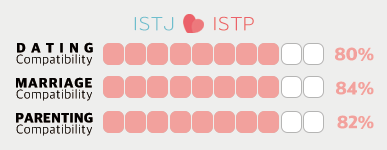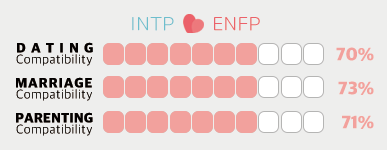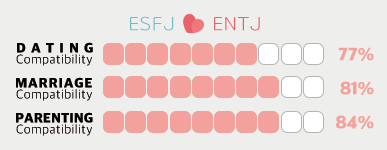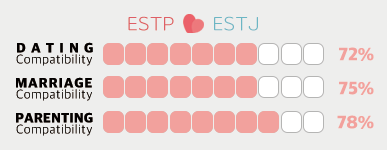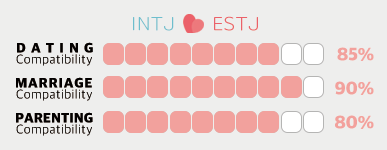ESFP Male and INTP Female Compatibility – When Vibes Meet Analysis
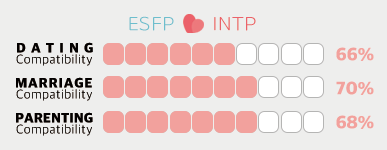
Before we dive in, let’s talk about this fascinating but tricky pair.
When these two look at each other, the first thought is often,
“Why are you so completely different from me?”
One moves through life by feeling and sensing the moment,
the other interprets everything through logic and analysis.
At first, their differences seem fresh and intriguing,
but over time, emotional gaps in communication can easily appear if they’re not careful.
How It All Starts
The ESFP man is quick to read the room and strike up conversation.
The INTP woman, outwardly quiet but full of inner thoughts, tends to respond cautiously.
The ESFP usually makes the first move, while the INTP reacts with reserved curiosity.
Over time, she may find herself intrigued by his charm and persistence.
However, because their emotional expression styles are so different,
it can take a while for a real connection to form.
Compatibility Score – 66%
The ESFP expresses feelings the moment they arise.
The INTP, even when feeling something, first analyzes it before speaking.
This often causes their emotional timing to be completely off.
One says, “This moment is amazing!”
while the other silently thinks, “Let’s figure out why this moment feels good first.”
Despite these mismatches, if they respect each other’s emotional pace,
they can become surprisingly good partners.
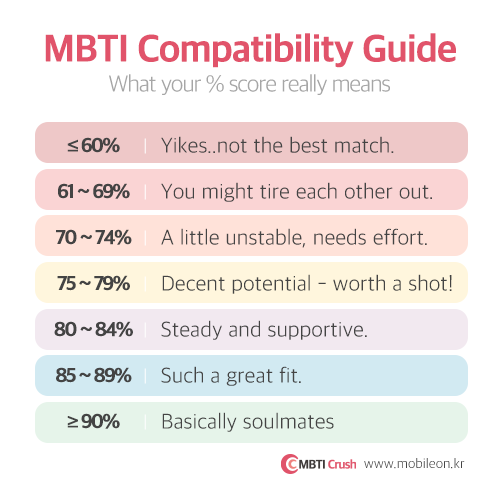
Relationship Style
The ESFP is spontaneous and emotional.
When he wants to meet or express affection, he acts immediately and wholeheartedly.
The INTP, by contrast, remains emotionally calm on the surface.
Even a simple “I like you” only comes after careful internal analysis.
This leads the ESFP to sometimes think, “She doesn’t care about me,”
while the INTP feels overwhelmed by his constant energy.
Without learning to sync their emotional rhythms,
even early dating stages can easily fall apart.
Date Ideas That Actually Work
The ESFP plans spontaneous road trips, trendy café hopping, and lively adventures
The INTP prefers calm, intellectual spaces like bookstores, art galleries, or indie film theaters
The ideal compromise: an active, stimulating daytime date → a peaceful, deep conversation in the evening
Because their preferences for outings are so different,
creating a “crossover date routine” is crucial for mutual satisfaction.
How They Argue
The ESFP speaks up immediately when emotions rise.
The INTP processes quietly, and if feelings linger unresolved, she mentally checks out.
The ESFP often says, “Why didn’t you just tell me?”
while the INTP wonders, “Why are you taking this so personally?”
Their conflicts are less about dramatic blowouts and more about misaligned conversational flow.
It’s not the emotions-it’s the timing and delivery that cause friction.
If They Break Up
The INTP spends a long time contemplating the relationship before making a decision.
Once she decides, she detaches emotionally and moves on quietly.
The ESFP tends to act impulsively when emotions cool,
but then might feel a surge of regret and reach out again later.
By then, the INTP is usually already emotionally distant.
Reuniting is rare and, even if it happens, the same issues often resurface.
If They Get Married
Their lifestyle rhythms differ greatly.
The ESFP is socially active and people-oriented,
while the INTP treasures alone time and deep reflection.
One focuses on today; the other sees the bigger life picture.
If they try to force each other into their own mold, fatigue sets in quickly.
But if they divide roles smartly, they can build a surprisingly practical and joyful marriage.
Marriage Compatibility – 70%
Instead of a “best friends” vibe, their marriage may feel more like respectful roommates.
Because they have different communication and daily life rhythms,
early marriage could bring plenty of small clashes.
However, since both are relatively tolerant emotionally,
they usually avoid catastrophic fights.
Building routines for emotional sharing is critical to long-term success.
The moment they fully accept, “We’re simply different,” real peace begins.
Parenting Compatibility – 68%
The ESFP naturally engages with the child emotionally and through playful activities.
The INTP focuses on intellectual stimulation and growth.
Together, they offer a good balance-
but without a shared parenting philosophy, clashes are likely.
The INTP leans toward structured thinking and logic,
while the ESFP relies more on emotional and sensory feedback.
Open, regular communication about parenting is essential.
From the child’s perspective, having such different parental styles can be a rich and stimulating experience.
Watch Out For
ESFPs should not mistake the INTP’s quietness for indifference.
INTPs must avoid dismissing the ESFP’s emotional expressions as “superficial.”
Because their emotional and cognitive speeds are different,
they must consciously work to prevent feelings of loneliness even while being together.
Final Thoughts
The ESFP man and INTP woman embody the clash between living in the moment and analyzing every detail.
Timing mismatches and differing emotional expressions are frequent hurdles.
But if they view their differences not as “errors” but as “different solutions,”
they can create a relationship experience unlike any they’ve ever had before-
one full of emotional spontaneity and thoughtful depth.

